

Previously, the 5GH team and our international allies exposed some questionable editorial contributions of WANG Aijie as Editor-in-Chief on Environmental Research, an Elsevier title. As the investigation went on, we found more concerning editorial activities from Wang, a professor at Harbin Institute of Technology and CAS Research Center for Eco-Environmental Science, and she was also a winner for the National Science Fund for Distinguished Young Scholars, China. Here, we update the list for her questionable editorial contributions.
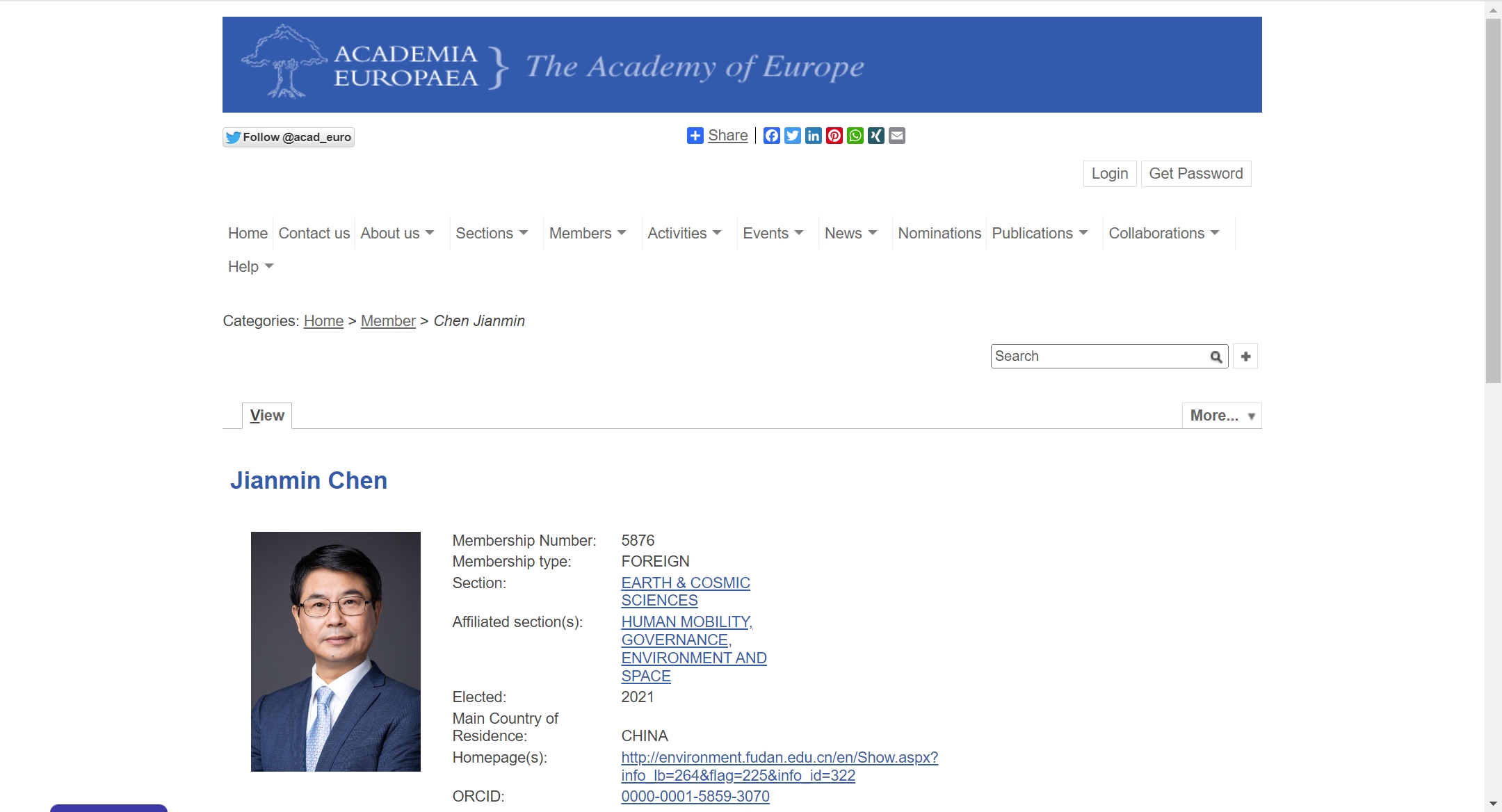
CHEN Jianmin, a professor at Fudan University and a fellow of Acadamia Europaea, is currently accused to get involved in questionable editorial practices. The investigation by the 5GH team revealed that he got involved in 44 cases of unethical practices, including 2 cases of Edit-for-Themself and 42 cases of Edit-for-Pal, all of these editorial practices were given to the articles on “Science of the Total Environment”, an Elsevier title.
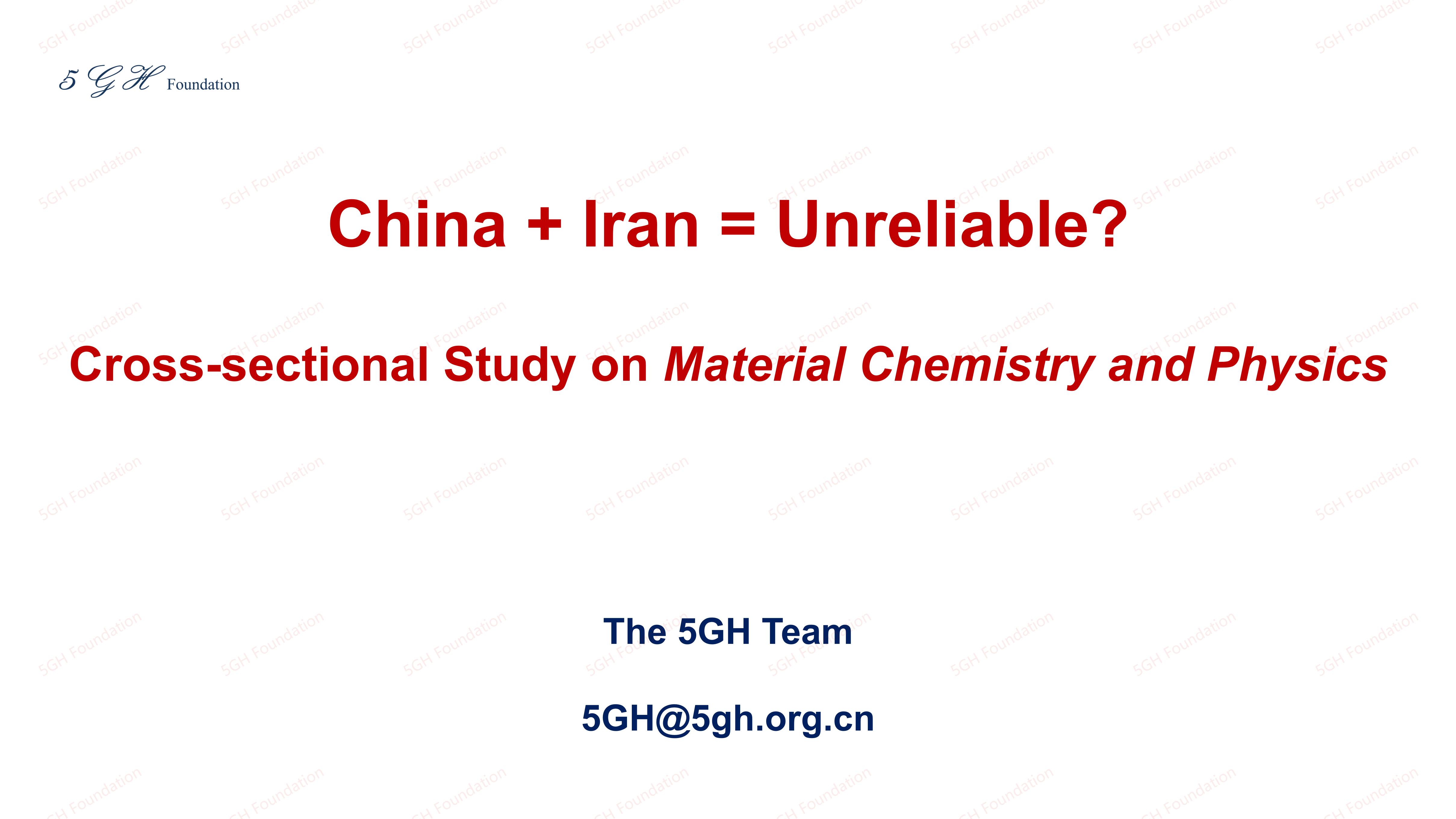
A current investigation by the 5GH team reveals that on the journal "Material Chemistry and Physics", 40% articles with coauthors from China and Iran have unreliable data issues. The team investigated 34 papers obtained on October 3rd, 2024, using a searching strategy of "Journal or Book Title: Materials Chemistry and Physics, Author Affiliation: China and Iran" on ScienceDirect website, and discovered the above-mentioned outcomes.
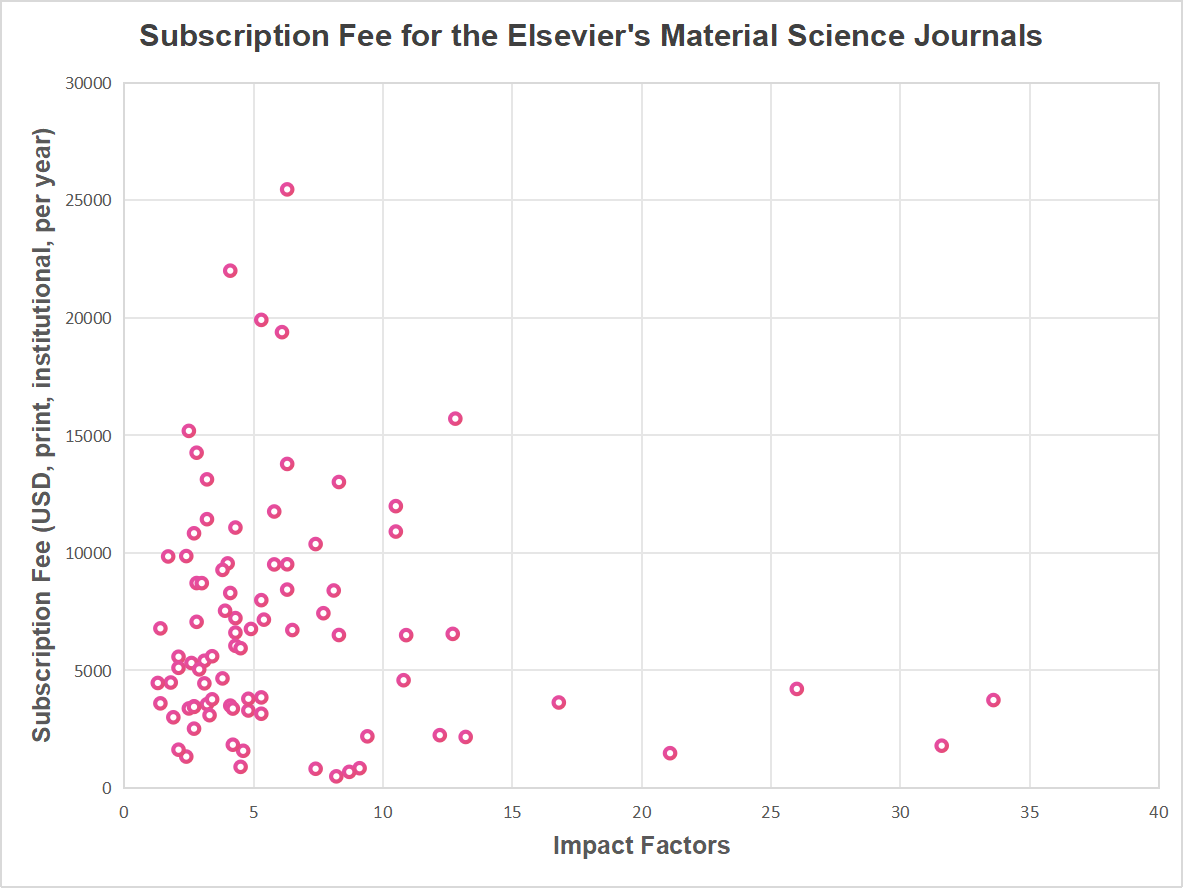
We estimate that Elsevier earns about 600 million USD from the subscription for these journal each year.
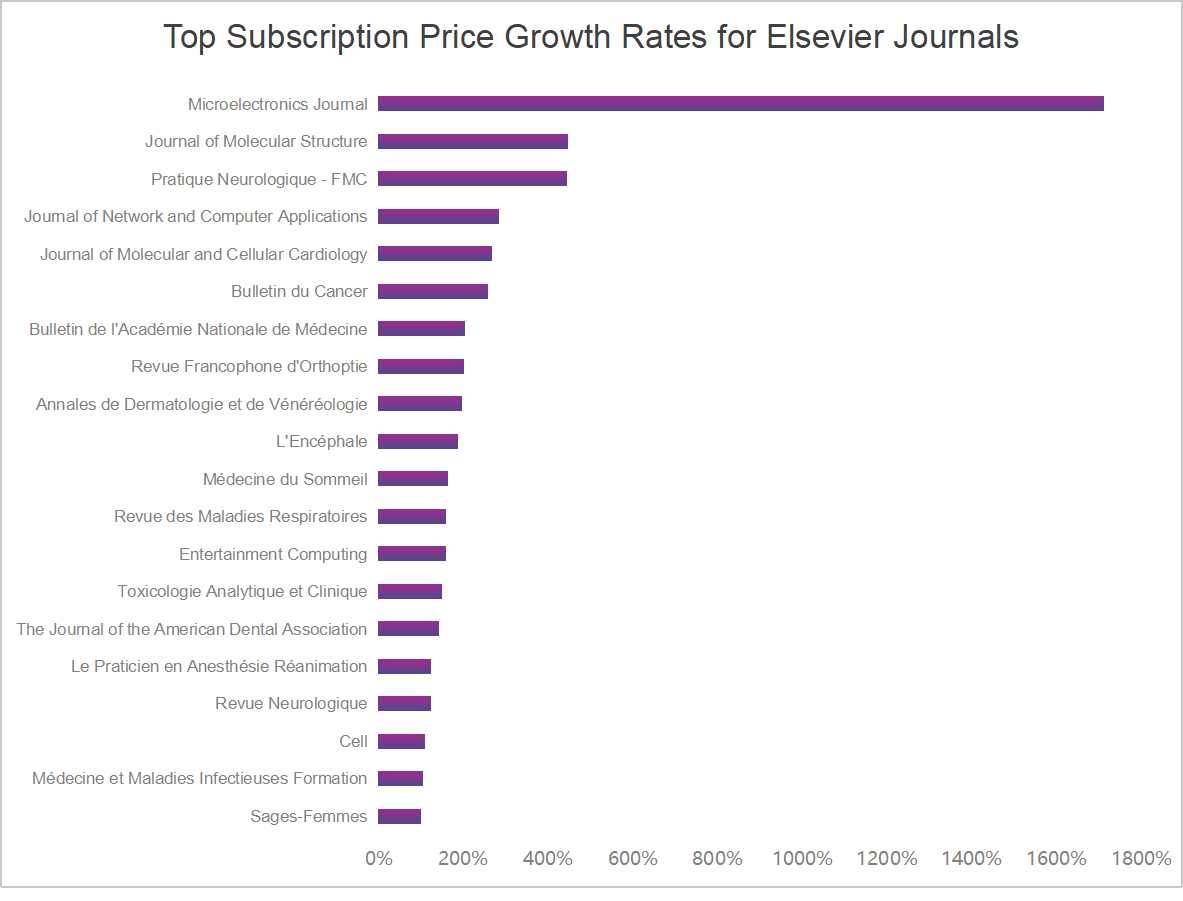
The subscription prices in 2025 for 838 of 1,531 journals (55%), whose subscription prices for both 2024 and 2025 are openly available, increase by 0.2% to 1,712.3%, compared to the prices in 2024
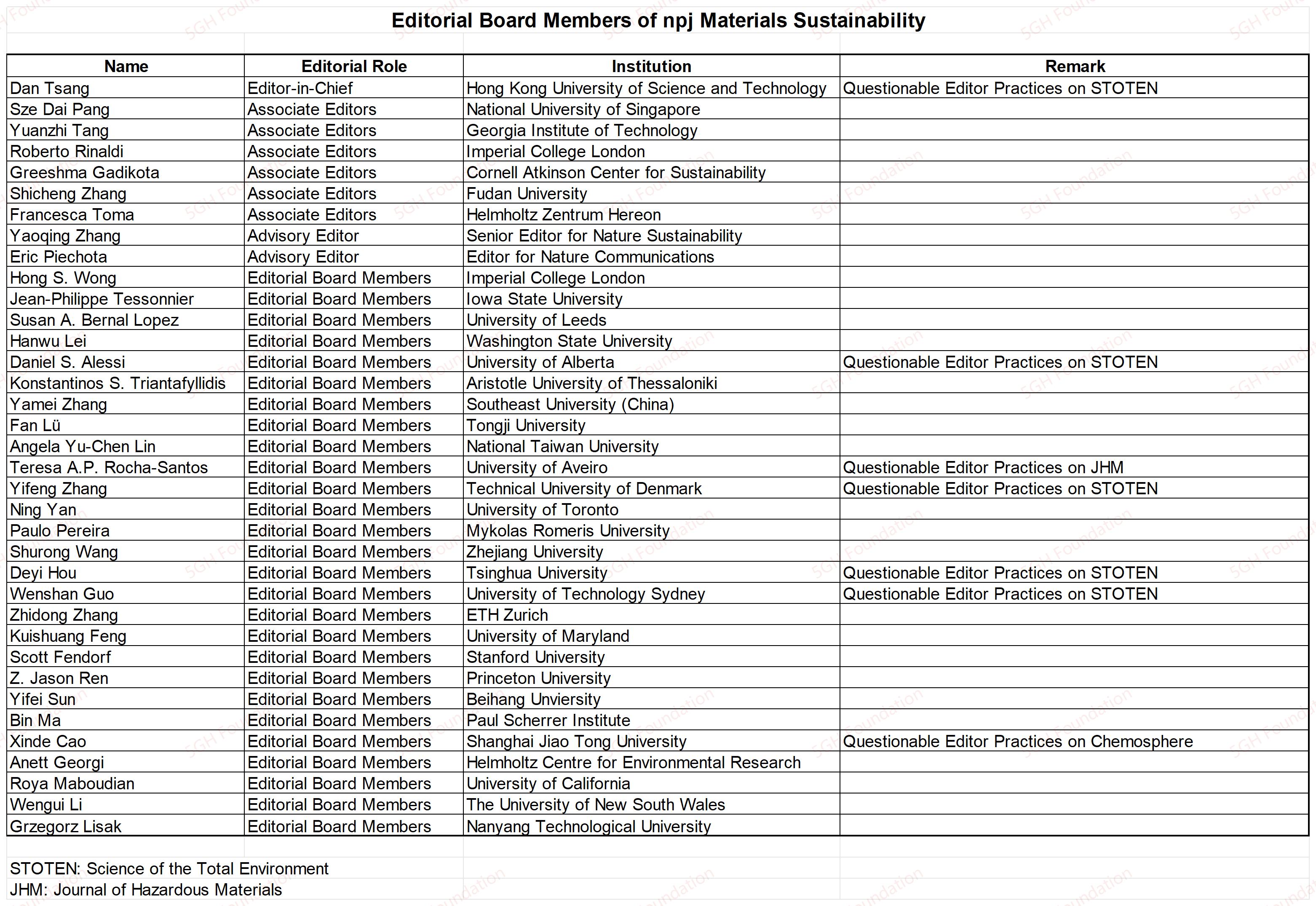
We urge Springer Nature, the publisher of the journal, to keep eyes on the editors.
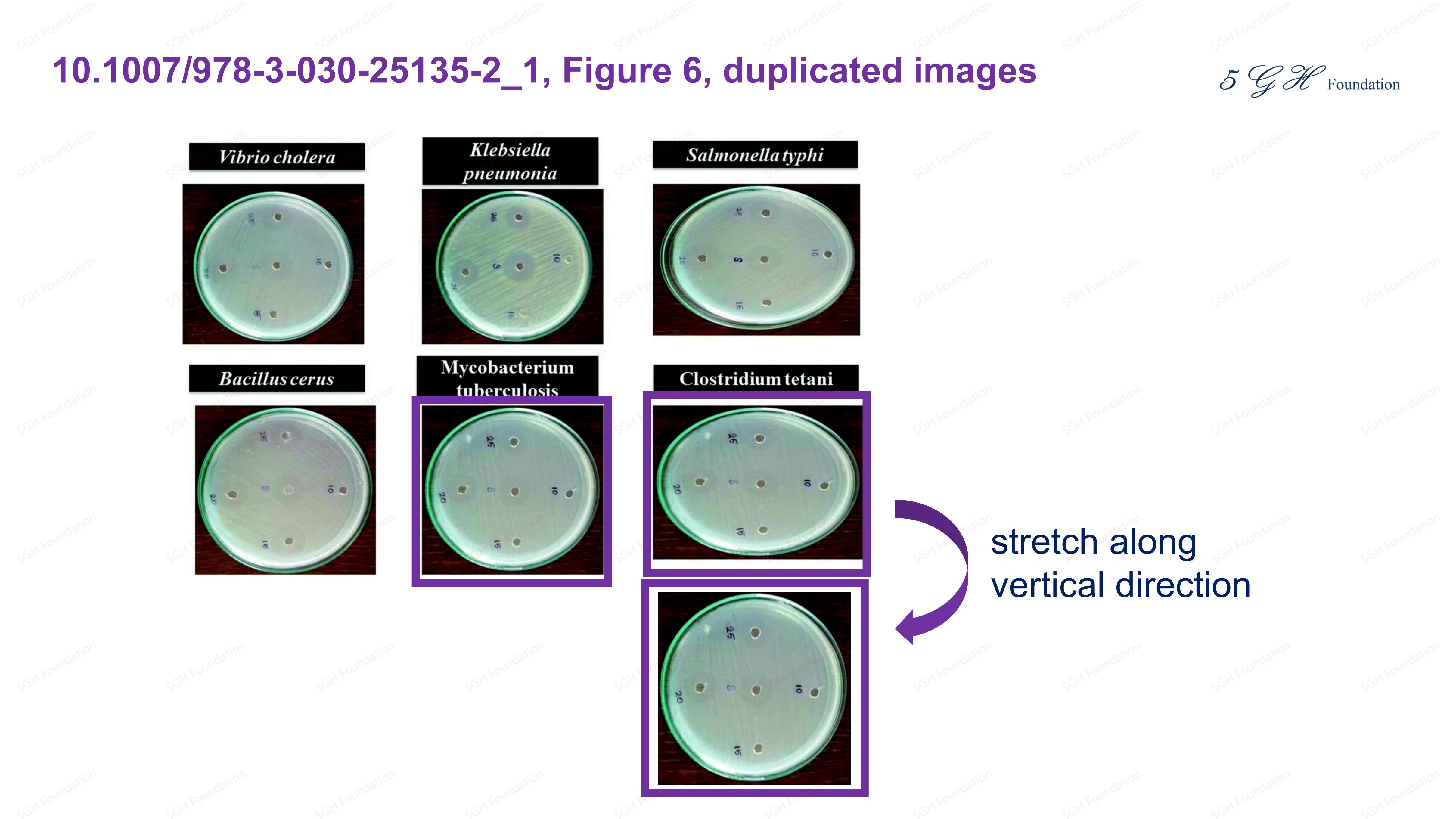
Concerns are raised about the reliability of the data and images on article
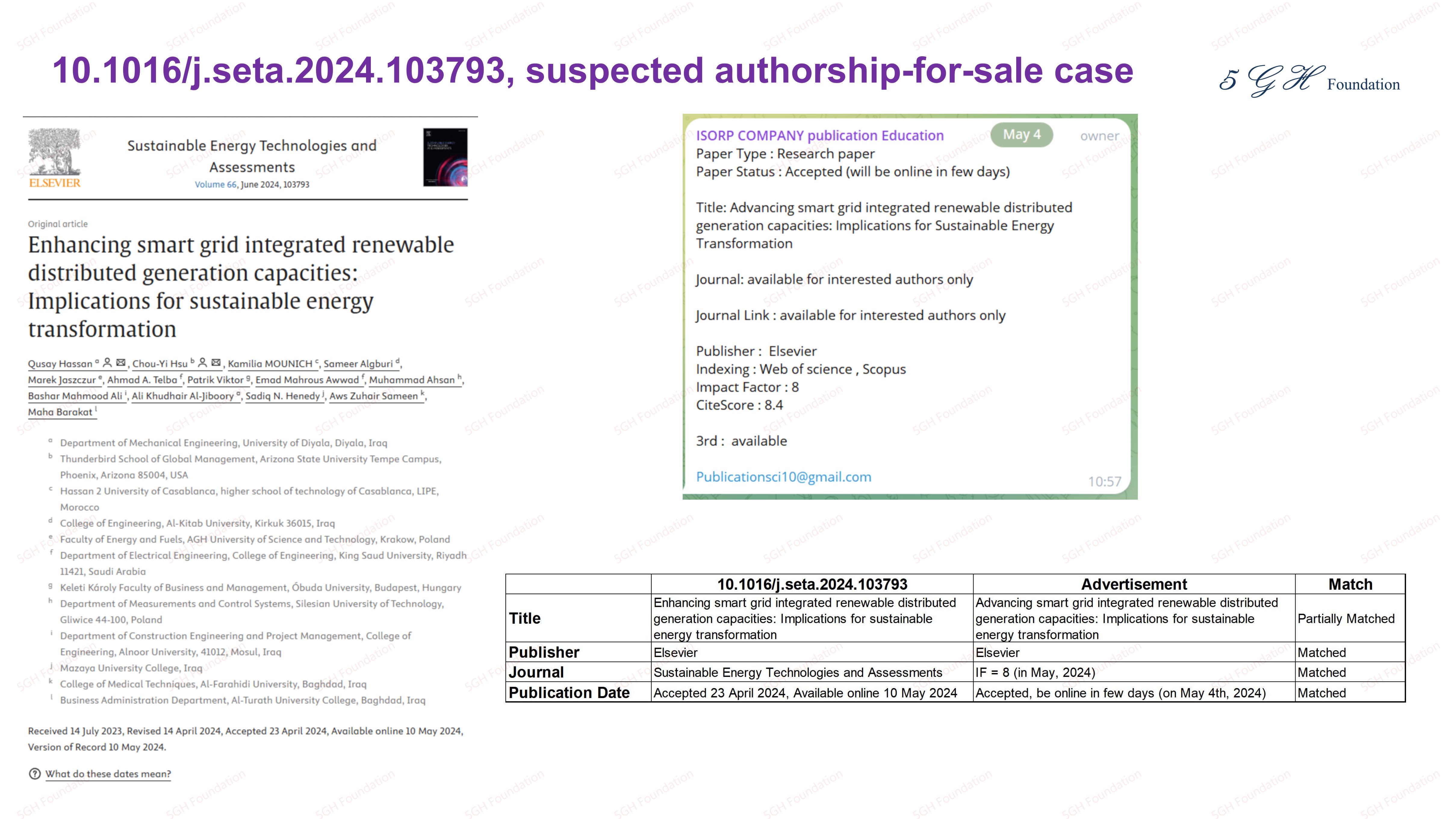
Recently, we heard from an anonymous source that an article on "Sustainable Energy Technologies and Assessments", an Elsevier title, was related to a potential Authorship-for-Sale case.
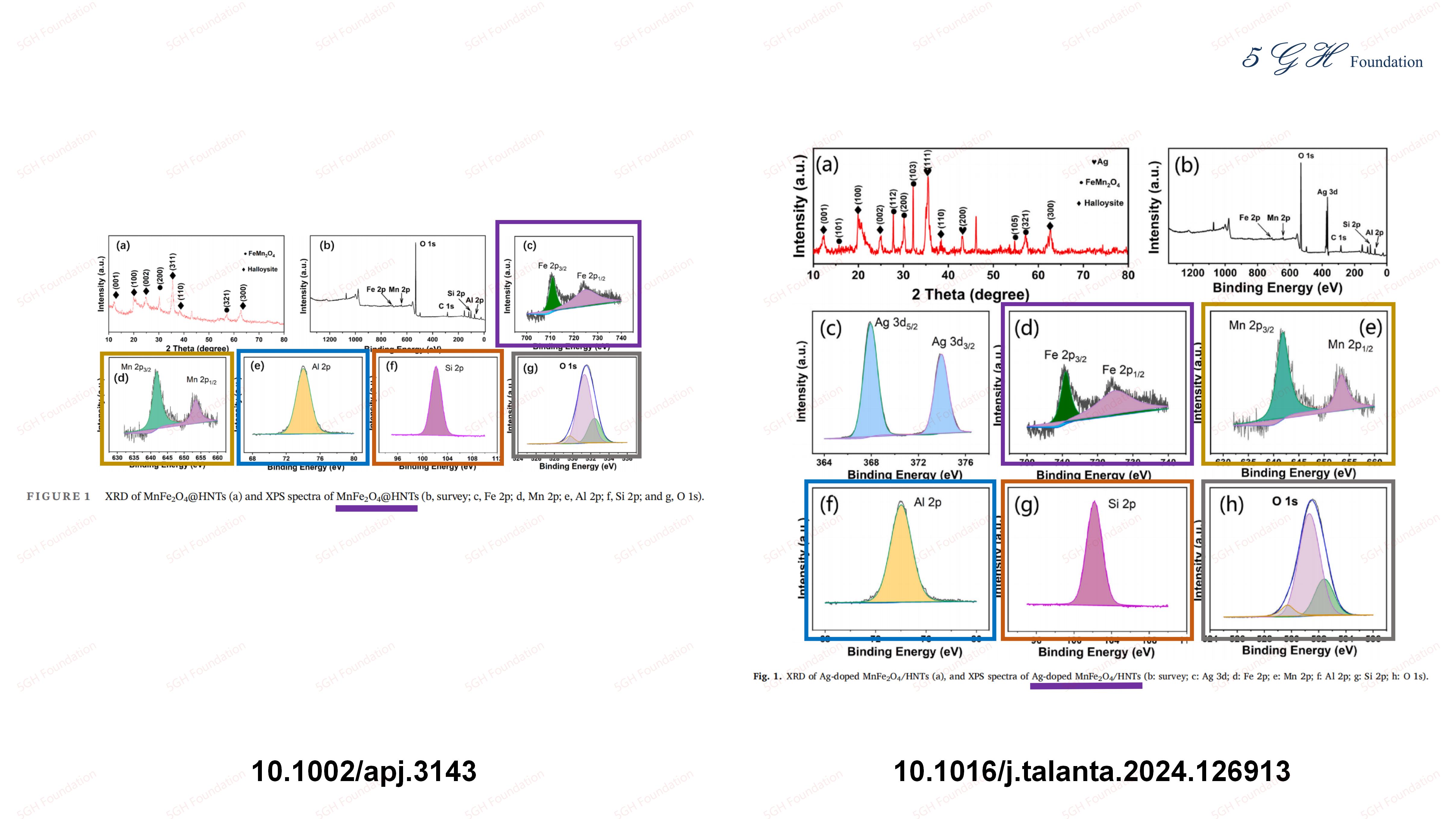
An anonymous source told the 5GH team that XIANG Zhenbo with Rizhao Polytechnic reused their spectra on two articles.

In the meantime, high proportions (in some years, the number reached about 1/30) of these papers form Chinese vocational colleges were retracted due to academic misconduct, including but not limited to plagiarism, manipulated peer revies, as well as authorship-for-sale.
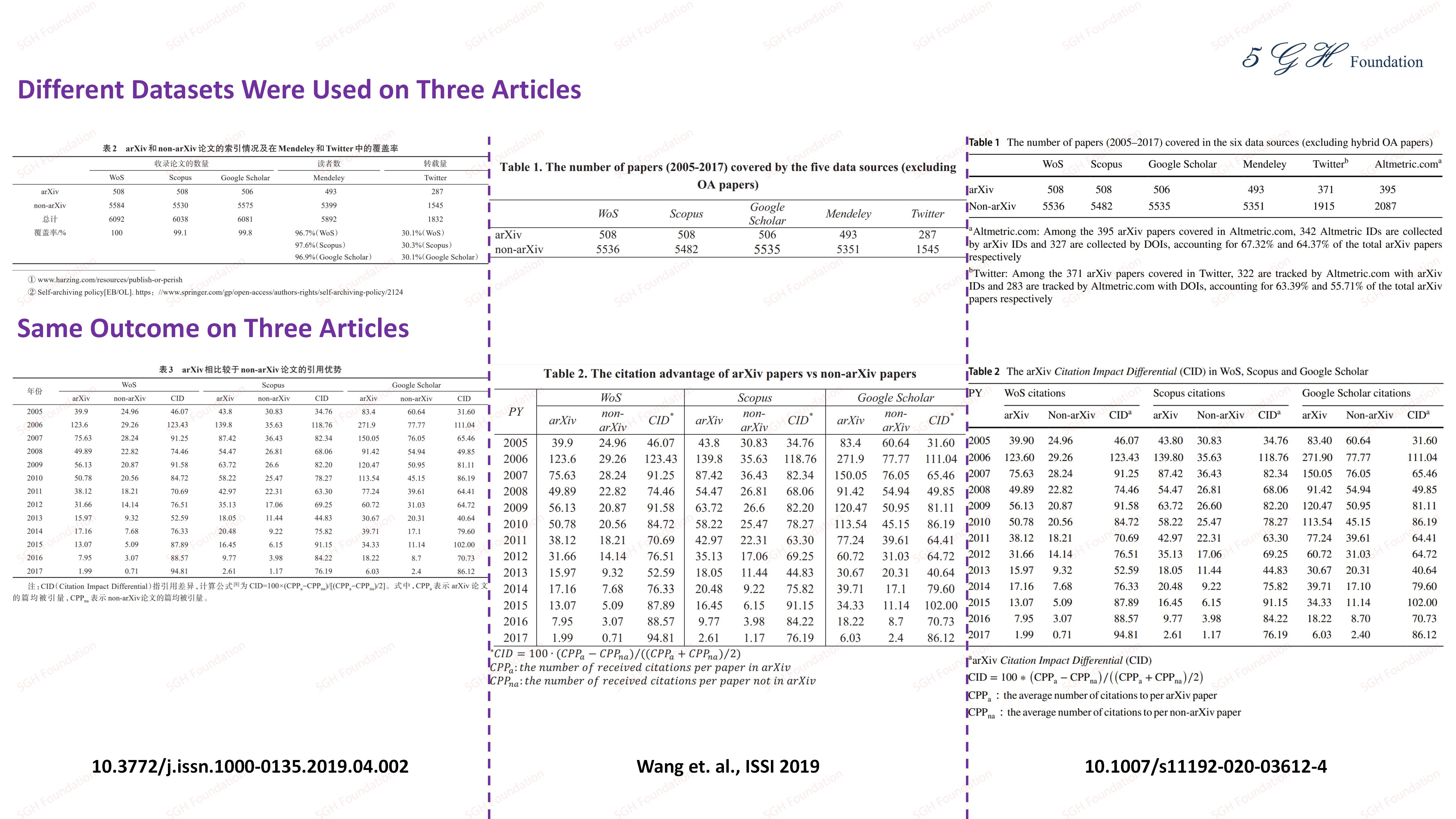
Through an investigation, the 5GH team found 5 charts on the Scientometrics article, including Table 2, Figure 2, Figure 3, Table 3, and Figure 6 overlapped with tables and figures on other articles
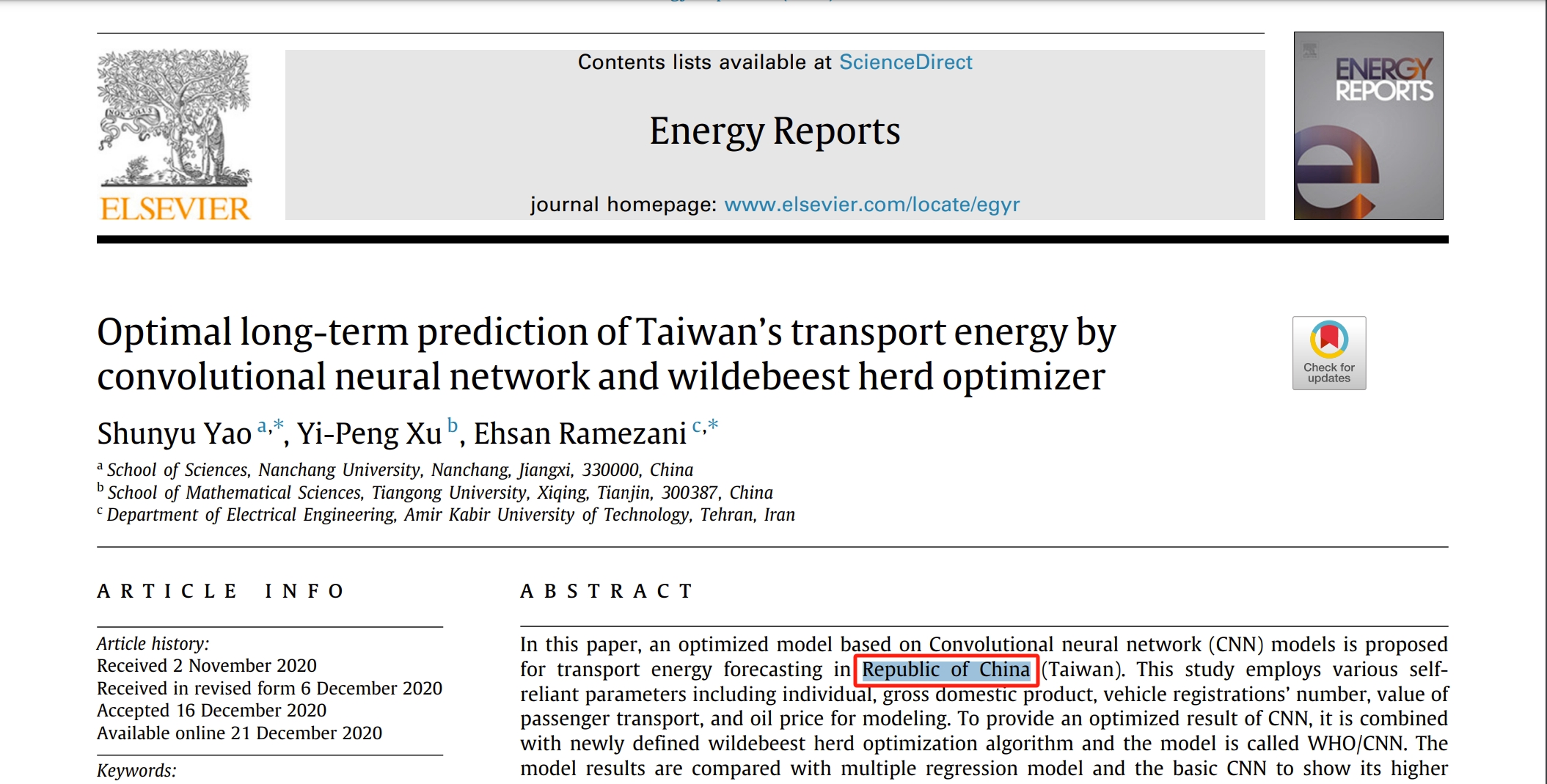
Nowadays, the name "Republic of China" is not widely used to refer to Taiwan in academic articles, except for the those by Taiwan authors. However, the name was found 4 times on an article with no Taiwan authors were listed.
A study published on PLoS ONE did not disclose the ethic approval numbers, although the authors claimed that the study "was approved by the Ethical Committee of the participating hospitals".
Jalil Manafian, an author from Iran, published 7 articles on Scientific Reports in 2024. All of them have fishy authorship patterns: (1) Chinese authors were listed as first authors for the articles, the 8 Chinese authors (one as the second author) were from 8 different institutions; (2) the others authors for each article were from multiple nations in West and South Asia, such as Iran, Saudi Arabia, India and others. The widespread cooperations between these authors suggesting the articles potentially originated from paper mill, although the 5GH team has no details whether Manfian is running this paper mill.